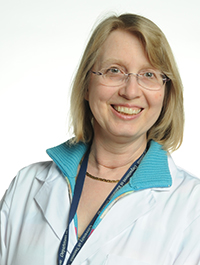
As many of you may know, our community lost a great leader and supporter of continuing professional development with the passing of Dr. Pamela Anne Catton on December 23, 2014
We had the privilege of working with Dr. Catton as the Event Director for multiple events that spanned over 20 years.
- Image Guided Radiation Therapy (IGRT)
- Quality and Safety in Radiation Therapy
- Head and Neck IGRT Course
- Paraspinal SBRT IGRT Course
- Toronto Cancer 2012 – Transcending Boundaries
- Personalizing Cancer Medicine 2014
Dr Catton was the recipient of the 2012-2013 Colin Woolf Award for Course Coordination in Continuing Education excellence along with two of her colleagues for the Department of Radiation Oncology: “Princess Margaret Hospital Accelerated Education Program”.
We are thankful for her successful leadership in the annual continuing education programs she ran and hope that her legacy will continue to live through her work.
Here is a touching tribute to Dr Catton by colleagues at UHN, published with permission.
Dr. Pamela Catton was a Radiation Oncologist at the Princess Margaret Cancer Center, and a Professor in the Department of Radiation Oncology, University of Toronto. She was an internationally renowned educator, and mentor to an entire generation of oncologists. Pam was a skilled and compassionate clinician, who consistently delivered exemplary care for her patients. She was a creative force in innovations in education, covering the spectrum from undergraduate, post-graduate, continuing education, faculty development, inter-professional, to patient and cancer survivor education.
Amongst many of Pam’s legacy was the development of a joint BSc Program in Medical Radiation Sciences (MRS) between the University of Toronto’s Department of Radiation Oncology with the Michener Institute, which at the time was the first Radiation Therapy Degree program in Canada. Since its initial establishment in 1999, the MRS program has trained more than 1500 radiation therapists, imaging and nuclear medicine technologists; many of whom are now leaders across Canada. Pam’s particular passion was the promotion of inter-professional education, and talent development in this domain. This passion translated into the creation of Clinical Specialist Radiation Therapists (CSRTs), which began as a pilot project at the Princess Margaret Cancer Center in 2007, and now has expanded to 24 CSRTs flourishing in 10 cancer centres across Ontario.
Pam’s contribution to the educational community extended well beyond our local environment; she was a key participant and leader in the Royal College of Physicians and Surgeons of Canada, ranging from numerous site visits across the country reviewing residency training programs, to Co-chairing the Working Group on CanMEDS roles, to Chairing the Education Research and Development Committee. In all of these activities, Pam worked tirelessly, critiqued constructively, and facilitated the transformation of our medical training curricula.
Pam has always been a strong advocate for Radiation Oncology, and was an active contributor to our Canadian Association of Radiation Oncology (CARO). She was instrumental in the establishment of CROF (the Canadian Radiation Oncology Foundation), the philanthropic arm of CARO, and was its Board Chair from 2011-2013, during which time, she established the CARO-CROF Summer Studentship in Radiation Oncology, facilitating medical students’ career development in Radiation Oncology.
Through her strong vision, boundless energy, and organizational skills, Pam also established the trailblazing ELLICSR: Health, Wellness, and Cancer Survivorship Centre at the University Health Network, the first center of its kind in Canada, focused on empowering “patients, to improve their health, well-being, and the overall delivery of cancer care.”
Pam was an inspiring mentor, who believed in everyone’s capacity to thrive in our academic environment; she would pour her entire energy and soul into ensuring that all trainees and junior faculties achieve success. She has mentored and influenced an entire generation of radiation medicine professionals, who are now leading their own programs nationally, and internationally.
Accordingly, Pam has received numerous honours and awards for her achievements, starting with innumerable Teaching and Mentorship Awards within the Department of Radiation Oncology; the Mickles Fellowship Award for Postgraduate Medical Education from the Faculty of Medicine; and the Anderson Award for Excellence in Educational Administration from the Wightman-Berris Academy. She also held the Inaugural Princess Margaret – University of Toronto Butterfield/Drew Chair in Breast Cancer Survivorship; received the Excellence in Cancer Patient Education Award from the US National Cancer Institute – Cancer Patient Education Network; and just this year, the 2014 Margaret Hay Edwards Achievement Medal from the American Association for Cancer Education, awarded to those who have made sustained outstanding contributions to cancer education.
Pam will be dearly missed by everyone within our communities. Her legacy will continue through all the programs which she has launched and established; her impact will continue to reverberate through the generations of radiation medicine professionals who will strive to advocate for the highest quality oncology care for our patients, as did Pam.